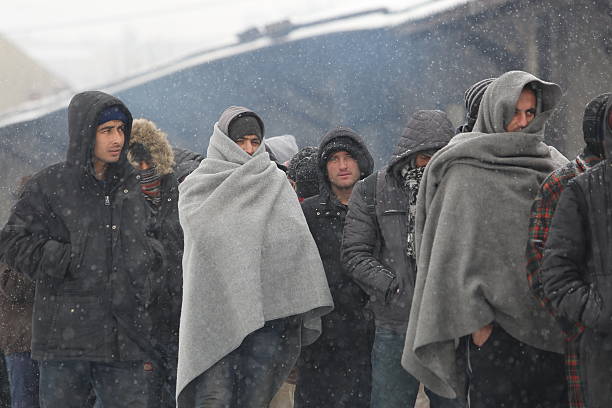Kabul, Geneva, New York, January 26 – Afghanistan is “hanging by a threat” just six months after Taliban forces took over the country and it is facing another brutal winter with people burning possessions to keep warm and over half of the population of 39 million suffering extreme levels of hunger and over 80 per cent relying on contaminated drinking water, UN Secretary-General Antonio Guterres told the UN Security Council.
“For Afghans, daily life has become a frozen hell,” Guterres said. Other extreme conditions include clinics overcrowded and under resources;
Covid-19, deadly preventable diseases like measles, diarrhea and even polio and some families forced to sell their babies to purchase food.
“There is a danger that the currency could go into freefall, and the country could lose 30 per cent of its GDP within the year,” he said pointing out that liquidity has evaporated as sanctions and mistrust by the global banking system have frozen nearly $9 billion in central bank assets.
“As the economy spirals downward, human rights are also losing ground,” the UN leader said, citing the plight of women who lost their jobs and girls shut-out of their classrooms, and arbitrary arrests and abductions of women activists. “Meanwhile, terrorism remains a constant threat – not only to the security of Afghanistan itself, but to the entire world.”
Guterres urged the council to support recommendations and humanitarian programs that the UN team in Afghanistan was launching to assist Afghanistan and to jump-start the country’s economy through increased liquidity.
While Guterres briefed the 15-nation Security Council at UN headquarters in New York, UN officials leading the humanitarian programs for Afghanistan launched the One-UN Transitional Engagement Framework (TEF) to assist Afghan people in 2022. They said TEF is the “overarching strategic planning document, ensuring the coordination of the UN team’s work to reduce the suffering of the people of Afghanistan by saving lives, sustaining essential services—such as health and education—and preserving essential community systems.”
“This UN system wide strategy will help ensure that Afghans can meet their basic human needs; acting on this now is more important than ever to avoid that an even wider proportion of the population requires lifesaving humanitarian assistance. It’s especially important now as millions are suffering with the harsh winter months, and we thank the international community for stepping up their vital support to the Afghan population,” said UN Resident and Humanitarian Coordinator for Afghanistan Dr. Ramiz Alakbarov.
The UN team said in a press release that the $8 billion required to implement this UN-wide framework include the $4.44 billion previously requested through the Humanitarian Response Plan, launched on 11 January, since all the activities in the TEF complement one another and are interdependent. While the HRP aims to deliver lifesaving assistance to 22.1 million people, through the TEF, the UN requires an additional $3.6 billion in immediate funding to sustain essential social services such as health and education; support community systems through maintenance of basic infrastructure; and maintain critical capacities for service delivery and promotion of livelihoods and social cohesion, with specific emphasis on socio-economic needs of women and girls.
“The United Nations are grateful to all donors for their continued generous support of relief and recovery efforts in Afghanistan, demonstrating the strong solidarity of the international community with the people of Afghanistan,” Dr. Alakbarov said, launching the TEF in Kabul with UN team representatives and members of the international community. “With the world coming together in aid of the resilient Afghans, adherence to the principles of equity, transparency and accountability inscribed in TEF will work towards restoring hope and dignity for all Afghans.”
The press release said the European Union recently announced 268 million Euros (US$302 million) to meet the basic human needs of the Afghans. Key contributions also include $308 million from the United States as well as continued generous support from the UK, Germany, Australia, Italy, Canada, Japan, Denmark, Sweden, Norway, Netherlands, Republic of Korea and other donors.
The Asian Development Bank (ADB) has approved $405 million in grants to support food security and sustain delivery of essential health and education services, while the World Bank (WB) and the Afghanistan Reconstruction Trust Fund (ARTF) donors approved first transfer of $280 million in support of delivery of essential services. Staying and delivering at the grassroots level across Afghanistan, the UN and partners will continue to engage in the sustained effort to meet humanitarian and basic human needs of Afghans, in compliance with UN Security Council Resolution 2615 adopted in December of 2021.
United Nations correspondent journalists – United Nations correspondent journalists – United Nations correspondent journalists
United Nations journalism articles – United Nations journalism articles – United Nations journalism article

